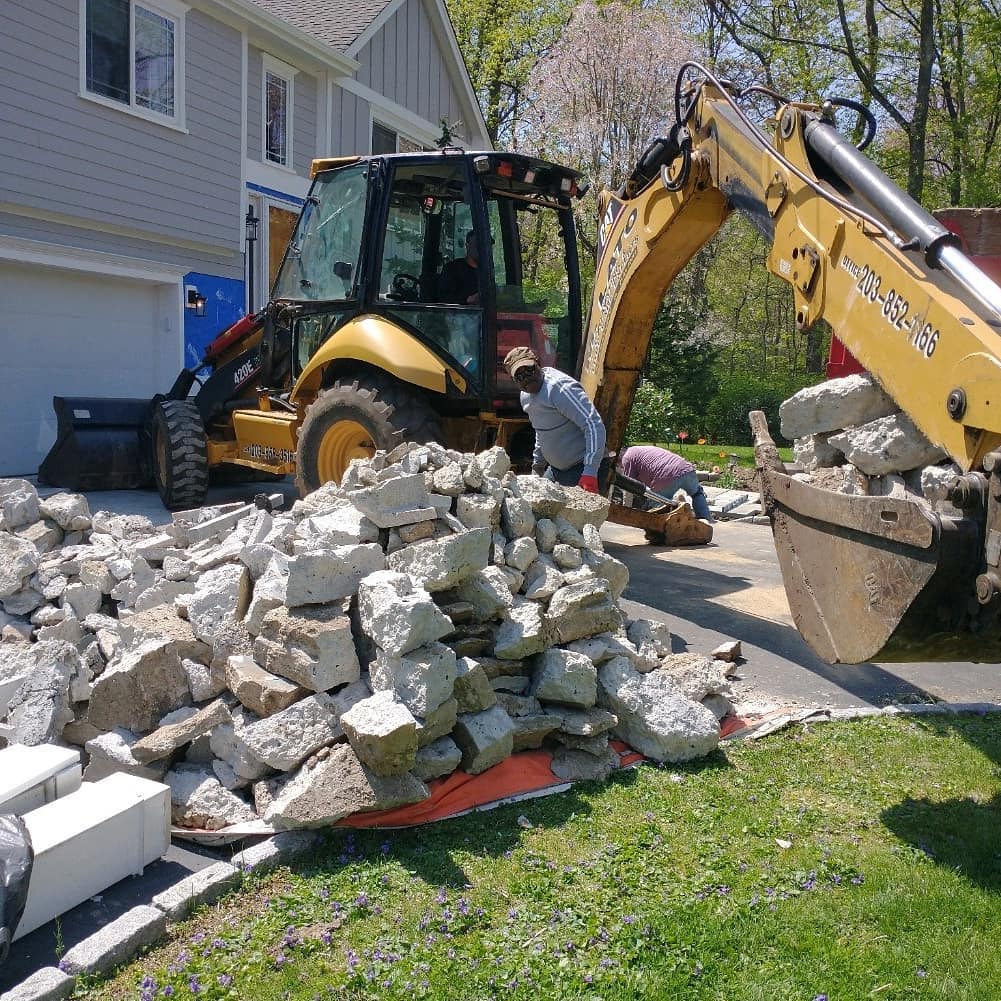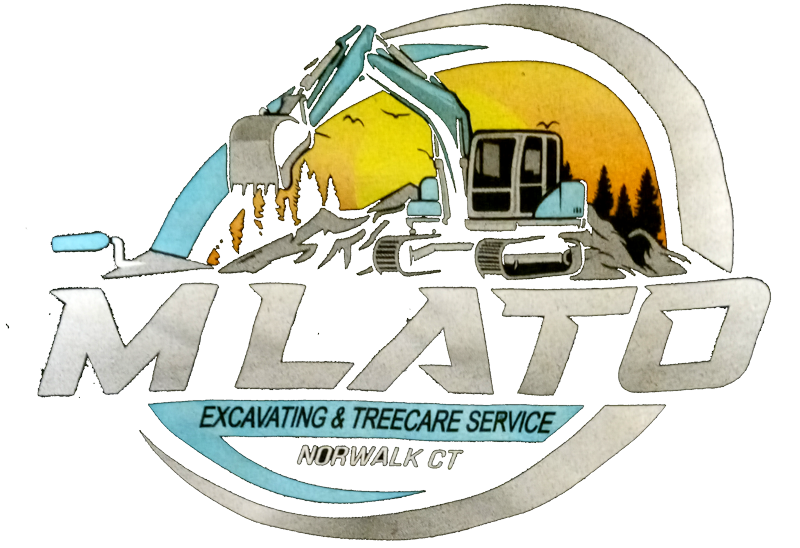Professional Retaining Wall Services for Residential and Commercial Needs
Connecticut
Durable and Beautiful Retaining Walls
Retaining walls are an essential feature of many properties, offering both functional and aesthetic benefits. Whether you’re looking to prevent erosion, create a level garden bed, or enhance your landscaping, a well-designed retaining wall can provide lasting solutions.
At M Lato Excavating & Tree Care, we specialize in providing high-quality retaining wall services in Norwalk, Connecticut, and the surrounding areas for residential and commercial properties, ensuring durability, stability, and beauty for your outdoor spaces.

What Do Retaining Walls Do and How Do They Work?
Functionality of Retaining Walls
A retaining wall is a structure designed to hold back soil or rock from a particular area, preventing erosion or movement of the land. These walls are typically used to level out uneven terrain, creating a flat surface for landscaping, gardening, or construction. By holding soil in place, retaining walls prevent soil from washing away due to rain, wind, or irrigation.
Retaining walls work by applying pressure to the soil or earth behind them. This pressure creates stability and stops the land from shifting. The design of the wall (whether gravity, cantilevered, counterfort, or anchored) depends on the height of the wall and the type of material used. Common materials for retaining walls include natural stone, concrete blocks, brick, and timber.
How Retaining Walls Are Built
- Site Evaluation: A professional team will assess the landscape and soil conditions to determine the best design and materials for your retaining wall.
- Design and Planning: Based on the site evaluation, a custom design will be created that suits the needs of your property while ensuring stability and functionality.
- Excavation and Base Preparation: The area where the retaining wall will be installed is excavated, and a solid base is created to ensure the wall’s stability.
- Wall Construction: The materials are carefully stacked or poured to create the retaining wall, ensuring that proper drainage systems are in place to avoid water pressure buildup.
- Finishing Touches: After the wall is built, the surrounding area is landscaped to blend the wall seamlessly with your property’s overall design.
Why Retaining Walls Are Important
For Residential Needs
In a residential setting, retaining walls serve several important purposes. If your property has a slope or uneven terrain, a retaining wall can help stabilize the ground and prevent soil erosion. This is particularly crucial for properties located in hilly or mountainous areas. A properly installed retaining wall not only helps manage water runoff but also adds usable space for landscaping or outdoor living areas.
Additionally, retaining walls are a great way to create distinct levels in your yard, giving you the flexibility to design unique garden spaces or patios. These structures can also add curb appeal and value to your home, making them a wise investment in the long run.
For Commercial Needs
For commercial properties, retaining walls provide the same functional benefits, but on a larger scale. Retaining walls are essential for maintaining the integrity of parking lots, commercial gardens, or large office complexes that are built on uneven or sloped terrain. They help with drainage, prevent soil erosion, and create level areas for landscaping or building foundations.
A well-constructed retaining wall can also improve the aesthetic appeal of your commercial property, giving it a clean and polished look that attracts customers or clients. Additionally, retaining walls can help protect surrounding structures from potential damage caused by water runoff or soil movement.
How Poor Retaining Walls Can Negatively Affect Your Property
Erosion and Soil Movement
Water Damage
Aesthetic Issues
Safety Hazards

